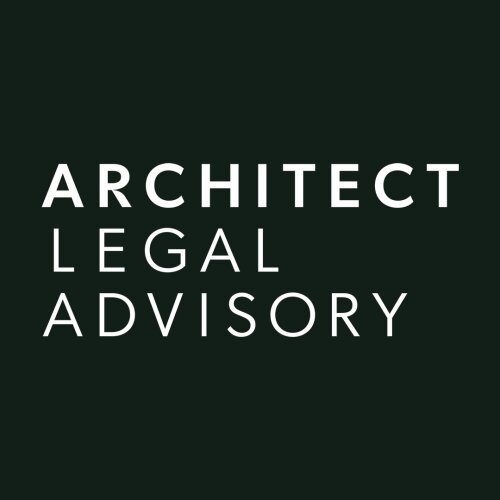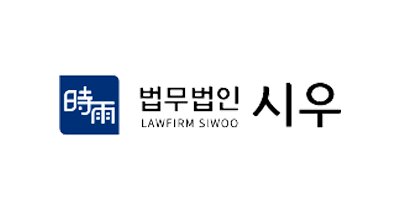Best Wrongful Termination Lawyers in South Korea
Share your needs with us, get contacted by law firms.
Free. Takes 2 min.
Or refine your search by selecting a city:
List of the best lawyers in South Korea
About Wrongful Termination Law in South Korea
In South Korea, wrongful termination refers to situations where an employee is dismissed from their job without just cause or in violation of contractual terms. The nation's labor laws are designed to protect workers from arbitrary and unfair dismissals, ensuring basic rights to fair treatment and job security. Employers are required to adhere strictly to contractual, statutory, and fair procedure requisites when terminating an employee. Significant emphasis is placed on ensuring that dismissals are grounded on fair reasons and are executed following appropriate procedures.
Why You May Need a Lawyer
Legal assistance is often sought in wrongful termination cases for several reasons. You may need a lawyer if you have been dismissed for discriminatory reasons, if your termination violates the terms of your employment contract, or if the correct procedural steps were not followed in your dismissal. Additionally, if you suspect that your layoff was in retaliation for whistleblowing or after exercising certain rights, such as leave entitlements, a lawyer's guidance can be crucial. Navigating the complexities of labor law, interpreting employment contracts, and dealing with company legal teams are scenarios where professional legal help can be instrumental.
Local Laws Overview
South Korea's labor laws are primarily governed by the Labor Standards Act. This Act stipulates that employees should only be dismissed for just cause, and any termination should involve a fair dismissal procedure, including sufficient notice and explanation. Employees with an employment period of more than six months are entitled to certain protections, and dismissals based on discriminatory factors such as gender, age, or union membership are prohibited. Moreover, collective agreements and individual employment contracts can provide additional protections and must be respected during the termination process. Understanding and applying these laws correctly is key in any wrongful termination case.
Frequently Asked Questions
What constitutes wrongful termination in South Korea?
Wrongful termination can include dismissals without just cause, lacking procedural fairness, or those based on discrimination or retaliation against protected activities.
Can I challenge my termination if I believe it was wrongful?
Yes, employees can file a complaint with the Labor Relations Commission or pursue legal action through the courts if they believe their termination was unjust.
How can I prove my termination was wrongful?
Documentation such as employment contracts, performance reviews, and any correspondence regarding your dismissal can be crucial. Witnesses and other evidence that hint at discriminatory practices can also support your case.
What is the role of the Labor Relations Commission?
It acts as a mediator in disputes between employees and employers, assisting with resolution and ensuring fair treatment according to labor standards.
Am I eligible for compensation if I win a wrongful termination case?
Yes, possible remedies include reinstatement, back pay, or financial compensation for damages incurred due to the wrongful termination.
How long do I have to file a complaint after termination?
Typically, complaints should be filed within three months of the termination date, according to South Korean labor law guidelines.
Can foreign workers challenge wrongful termination in South Korea?
Foreign workers are entitled to the same labor protections as local employees and can challenge wrongful terminations through available legal channels.
What if my employer claims financial difficulties as a reason for termination?
Employers must demonstrate genuine financial difficulties and have exhausted all other alternatives before proceeding with employee dismissals for this reason.
Can an employer fire me without notice?
In general, employers must provide a notice period as stipulated in the employment contract or a severance package equivalent if notice is not given.
Does joining a union protect me from wrongful termination?
Being in a union can provide additional protections and support in wrongful termination cases, as unions can advocate on behalf of the employee for fair treatment.
Additional Resources
The Ministry of Employment and Labor (MOEL) in South Korea is a primary resource for information and assistance on labor issues. The Korean Trade Union Confederation and the Labor Relations Commission are also vital entities that provide support and guidance. Legal aid centers and non-profit organizations focused on workers' rights can offer valuable resources for individuals seeking advice on wrongful termination claims.
Next Steps
If you believe you’ve been wrongfully terminated, it is crucial to act promptly. Compile all relevant documents related to your employment and termination. Seek professional legal advice to evaluate the merits of your case and navigate the available avenues for filing a complaint. Contact the Labor Relations Commission for initial assistance or engage with labor unions and rights organizations for further support. Remember, understanding your rights and the available legal frameworks is key to seeking redress in wrongful termination scenarios.
Lawzana helps you find the best lawyers and law firms in South Korea through a curated and pre-screened list of qualified legal professionals. Our platform offers rankings and detailed profiles of attorneys and law firms, allowing you to compare based on practice areas, including Wrongful Termination, experience, and client feedback.
Each profile includes a description of the firm's areas of practice, client reviews, team members and partners, year of establishment, spoken languages, office locations, contact information, social media presence, and any published articles or resources. Most firms on our platform speak English and are experienced in both local and international legal matters.
Get a quote from top-rated law firms in South Korea — quickly, securely, and without unnecessary hassle.
Disclaimer:
The information provided on this page is for general informational purposes only and does not constitute legal advice. While we strive to ensure the accuracy and relevance of the content, legal information may change over time, and interpretations of the law can vary. You should always consult with a qualified legal professional for advice specific to your situation.
We disclaim all liability for actions taken or not taken based on the content of this page. If you believe any information is incorrect or outdated, please contact us, and we will review and update it where appropriate.
Browse wrongful termination law firms by city in South Korea
Refine your search by selecting a city.
















